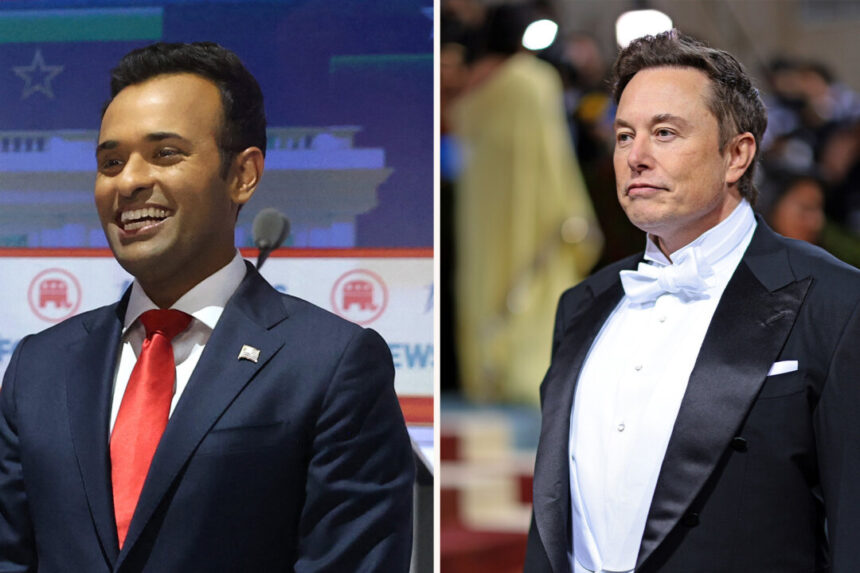Commentary
President-elect Donald Trump has expressed his intention to establish a Department of Government Efficiency (DOGE) to be led by two highly successful entrepreneurs—Elon Muck and Vivek Ramaswamy. The name of the proposed department raises concerns, as the concept of “government efficiency” is often viewed as contradictory. A more precise name would have been the Commission to Shrink Government. Nevertheless, DOGE is the chosen title, and the goal of reducing spending and bureaucracy is both necessary and urgent.
For perspective, the largest source of revenue for the government, personal income tax, brought in just under $2.2 trillion last year. This means that nearly half of income tax payments are now allocated to servicing the debt from past expenditures rather than funding current programs.
The Task Ahead: Big Cuts, Many Choices
Elon Musk and Vivek Ramaswamy have the daunting task of reducing the federal government’s size. Targeting frivolous expenses and unnecessary projects is a starting point, such as the $518,000 study on the impact of cocaine on Japanese quails’ sex lives.
Eliminating funding for dubious climate change projects and consolidating federal office spaces with low occupancy rates are other avenues for cost savings. Additionally, addressing anti-growth activism promoted by federal agencies like the EPA and revisiting wasteful legislation are crucial steps.
Congress plays a pivotal role in supporting efforts to curb government spending by repealing wasteful laws and reining in rogue bureaucracies that exceed their mandates. Addressing regulatory overreach and promoting fiscal responsibility are key to ensuring long-term economic stability.
Historical examples, such as Warren G. Harding’s successful policies of reducing federal spending and tax rates to stimulate economic growth, serve as valuable lessons for current policymakers. By learning from past successes and failures, the path to a sustainable economic future can be charted with prudence and foresight.
The ideological progressives who champion bigger government often defend Roosevelt and criticize Harding, but the facts actually support Harding’s side. Realistically, implementing Harding-style cuts to federal spending is not politically viable in today’s climate. Even after Harding’s significant cuts, the federal budget remained more than double its pre-World War I levels just a few years earlier. At that time, Americans had not yet become reliant on Big Government.
Conversely, today, multiple generations of Americans have grown accustomed to the various spending programs offered by the government. Breaking this cycle of dependency will be a challenging task. However, with the growing concern over trillion-dollar interest payments on the national debt, it is crucial for us to support individuals like Musk and Ramaswamy as they advocate for fiscal responsibility. While we hope for their success, it remains to be seen if Congress shares the same commitment to reducing federal spending. The road ahead may be challenging, but it is essential to address this issue.
Opinions expressed in this article are solely those of the author and may not necessarily reflect the views of The Epoch Times.






